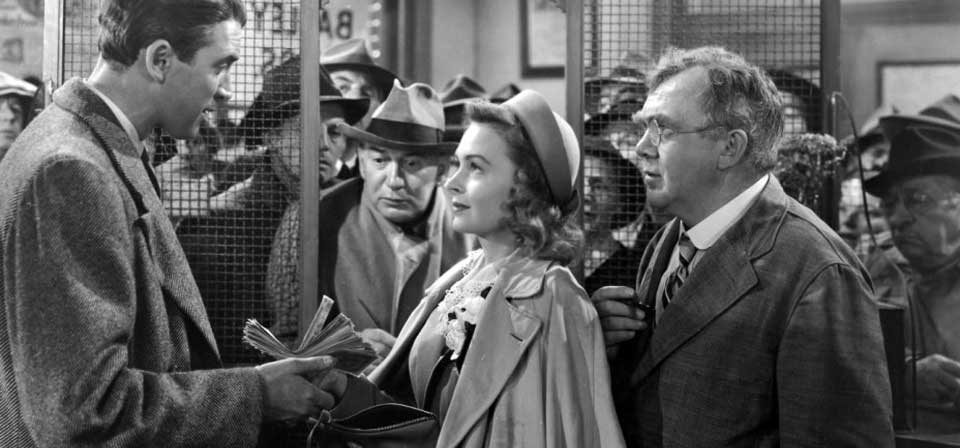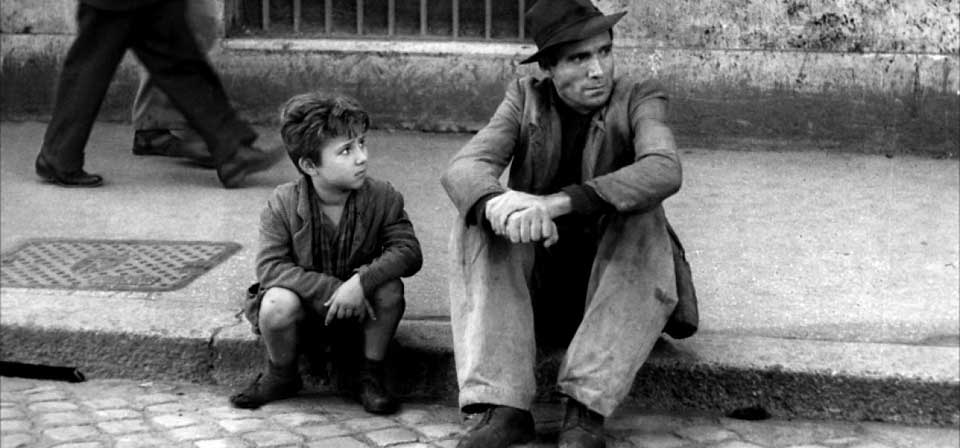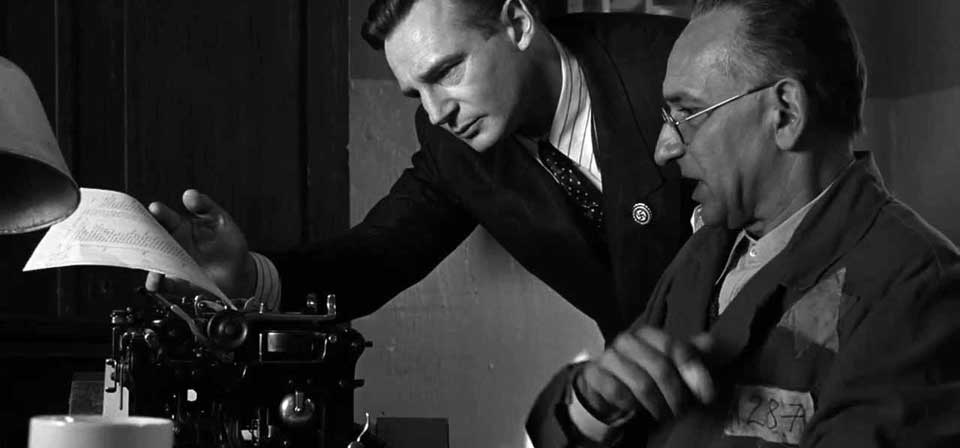Tags :: Vatican Film List: Values

It’s a Wonderful Life (1946)
The truth is that It’s a Wonderful Life is both darker and more subversive than its popular reputation as cheery holiday “Capra-corn” would suggest, and more robustly hopeful than cynics and hipster deconstructionists would have it.

Bicycle Thieves (The Bicycle Thief) (1948)
Relate the plot of Bicycle Thieves in a few sentences, and a person who had never seen the film might be forever haunted by it.
Roma, città aperta [Open City] (1945)
Developed in Rome during the Nazi occupation, shot in the Eternal City shortly after the Nazi withdrawal, Roberto Rossellini’s Rome Open City stunned audiences the world over who saw in it an unmediated authenticity more evocative of the documentary quality of wartime newsreels than of the artificiality of earlier, more conventional WWII dramas.
Chariots of Fire (1981)
Two very different approaches to religion and sport are at the heart of Chariots of Fire, a period piece that explores timeless themes of temporal ambitions and higher purposes, of commitment and sacrifice, of ability and spirit.
Au Revoir Les Enfants (1987)
Au Revoir Les Enfants, Louis Malle’s semi-autobiographical film about life in a Catholic boarding school for boys in Nazi-occupied France, has been called an elegy of innocence lost, though in fact the youthful characters are never truly innocent, only clueless, and what they lose is not innocence but something more elusive.
The Burmese Harp (1956)
Kon Ichikawa’s deeply humane, spiritually resonant masterpiece The Burmese Harp is routinely but reductionistically described as “pacifist” or “anti-war,” though in fact war is merely the occasion for the story’s theme, not the theme itself. That theme is nothing less than the intractable mystery of suffering and evil, an affirmation of spiritual values, and the challenge to live humanely in evil circumstances.
Wild Strawberries (1957)
For Bergman’s protagonist, an elderly doctor named Isak Borg (Victor Sjöström) who significantly shares Bergman’s initials, there is bitter as well as sweet in the fields of his mind. The film is a road trip that is also a journey of self-discovery as Borg is forced to confront his own coldness of heart and need for forgiveness.
The Seventh Seal (1957)
Starkly existential, boldly poetic, slow and grim, Ingmar Bergman’s great classic The Seventh Seal has haunted film aficionados, baffled and bored college students, inspired innumerable parodists, and challenged both believers and unbelievers for nearly half a century.

Schindler’s List (1993)
From the armbands to the ghettos, from forced labor to extermination camps and beyond, Schindler’s List covers the successive historical stages of the Final Solution more comprehensively than any other popular film had at the time, or has since. That, in part, is its great achievement — and, for many of its critics, its enduring stigma.
The Tree of the Wooden Clogs (1978)
Critic Dave Kehr of the Chicago Reader calls The Tree of the Wooden Clogs "less an advance over the standard film festival peasant epic than an unusually accomplished rendition of it," and speaks of a "Marxist sentimentalism" inherent in its subject matter and approach. This seems to me misleading. Olmi’s film may be best thought of, not as an attempted advance over the typically Marxist neorealist peasant epic, but as a redemption of it.
Intolerance (1916)
Intolerance is a grandiose composite epic, interweaving four separate morality plays from different eras and settings, from 20th-century America (the "Modern Story") to Old Testament times (the "Babylonian Story"). Rounding out the four are a brief survey of the life and death of Christ (the "Galilean Story" [sic; most of it is set in Judea, not Galilee]) and events from the 16th-century persecution and massacre of Huguenot Protestants under the Medicis, including the St. Bartholomew’s Day Massacre (the "French Story").
Gandhi (1982)
Overshadowing even Ben Kingsley’s astonishing, transcendent performance in his first major screen role is a larger, more formidable presence: that of Mohandas K. Gandhi himself.
The Decalogue (1988)
The Decalogue, Kieslowski’s extraordinary, challenging collection of ten one-hour films made for Polish television in the dying days of the Soviet Union, doesn’t answer those questions either. What it does is pose them as hauntingly and seriously as any cinematic effort in the last twenty years.
Dersu Uzala (1975)
Vladimir Arseniev was an early 20th-century explorer who mapped much of the krai territory of the Russian Far East and studied its indigenous peoples. Based on his memoirs, Akira Kurosawa’s Dersu Uzala tells the story of an unusual friendship between Arseniev (Yuri Solomin) and the nomadic tribal hunter for whom the film is named (Maksim Munzuk).
On the Waterfront (1954)
“A Going My Way with substance” is how Elia Kazan’s classic, controversial On the Waterfront was recently described in a lecture at Boston College.
Recent
- Benoit Blanc goes to church: Mysteries and faith in Wake Up Dead Man
- Are there too many Jesus movies?
- Antidote to the digital revolution: Carlo Acutis: Roadmap to Reality
- “Not I, But God”: Interview with Carlo Acutis: Roadmap to Reality director Tim Moriarty
- Gunn’s Superman is silly and sincere, and that’s good. It could be smarter.
Home Video
Copyright © 2000– Steven D. Greydanus. All rights reserved.